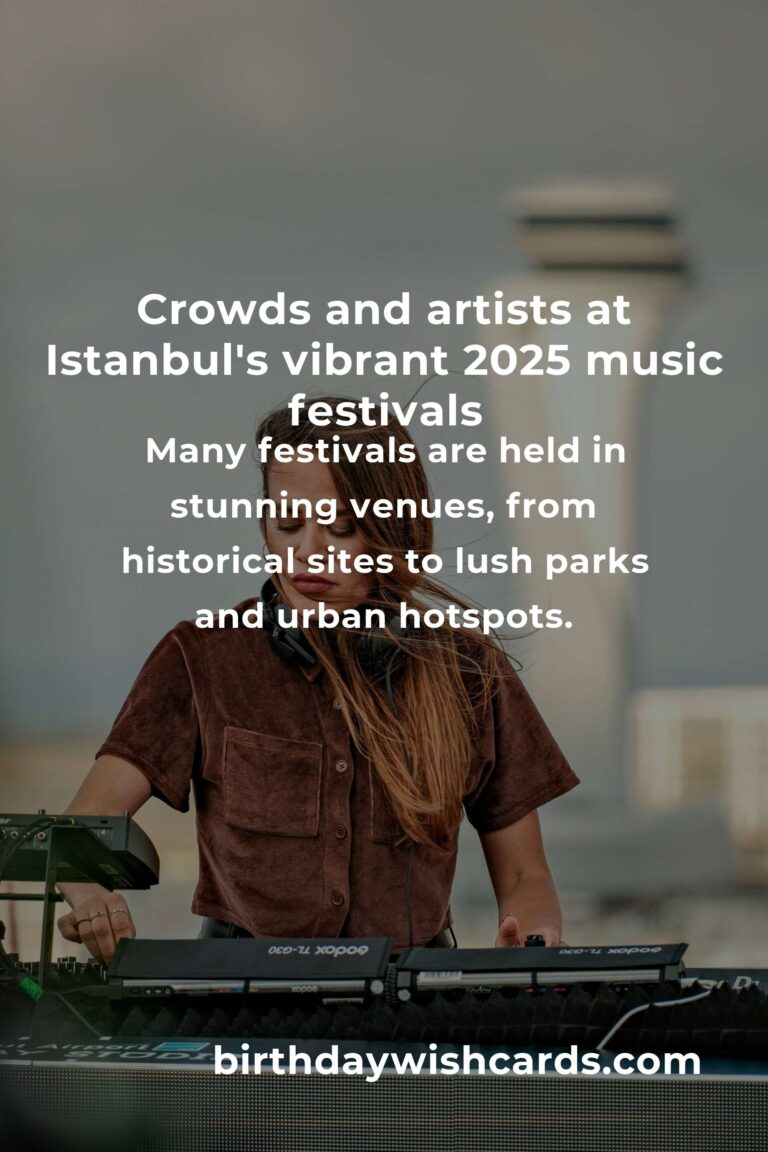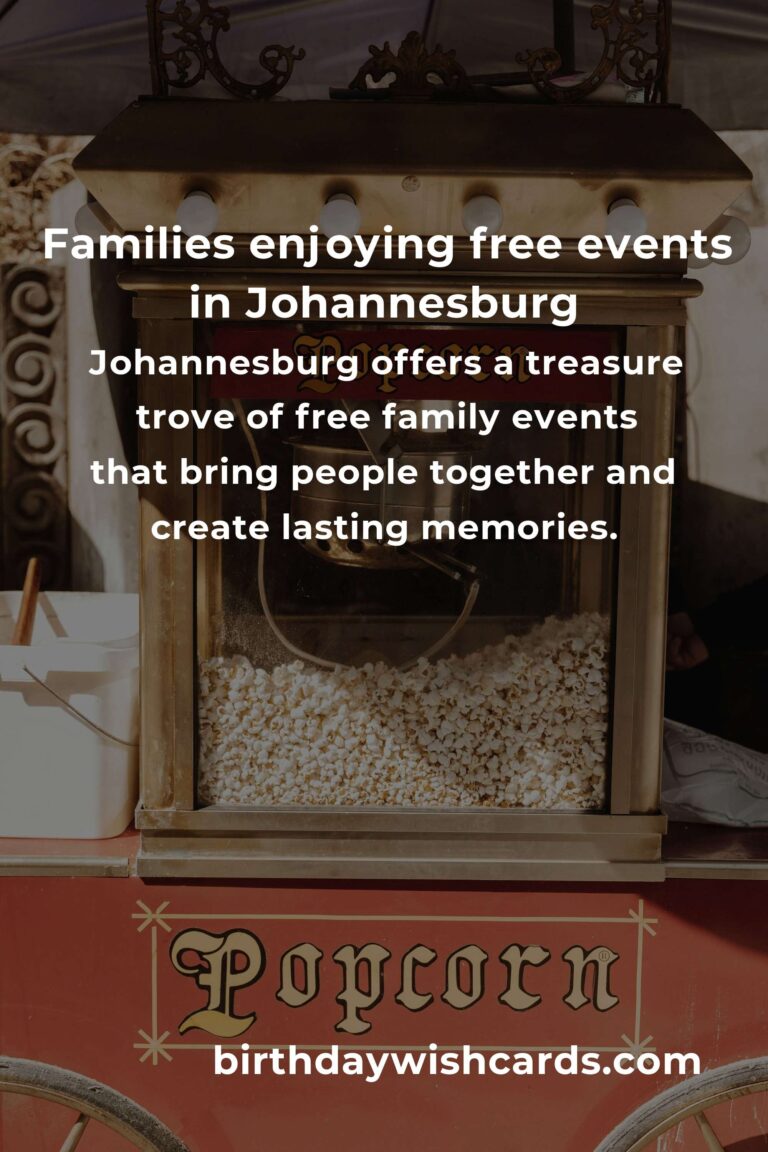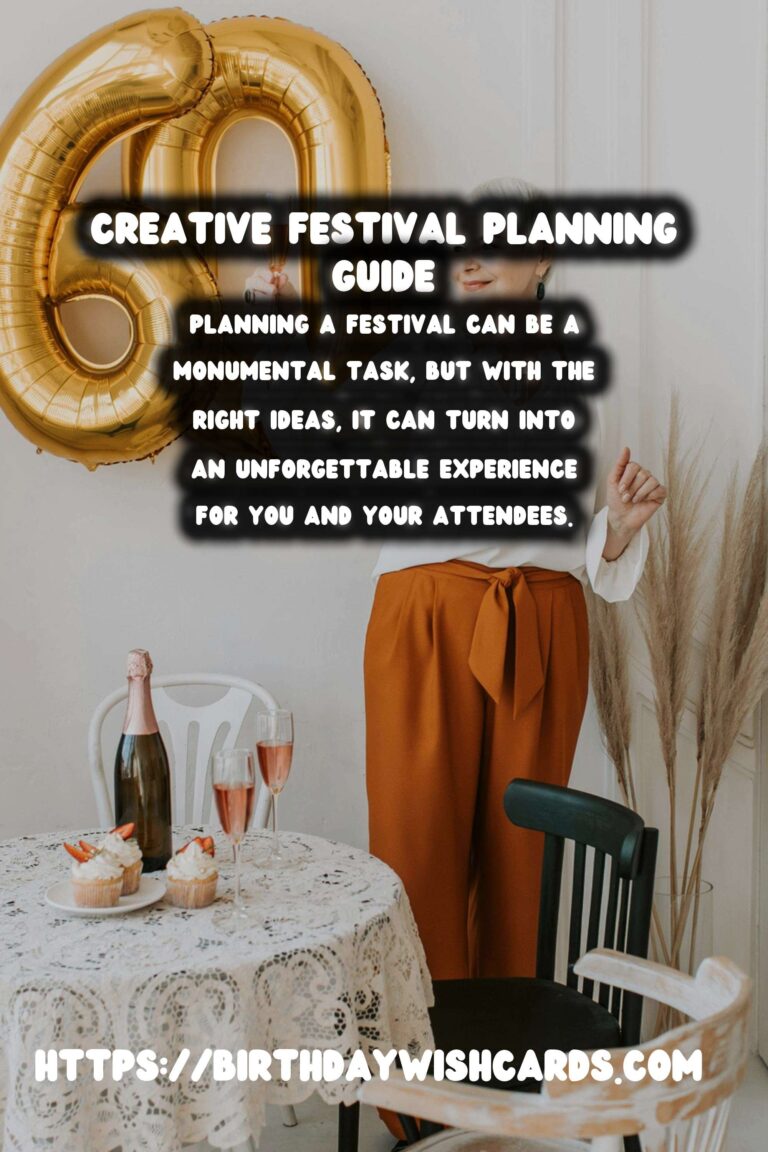
Planning a festival can be a monumental task, but with the right ideas, it can turn into an unforgettable experience for you and your attendees. Whether you’re organizing a music festival, cultural celebration, or community gathering, here are 50 creative and practical planning guide ideas to ensure your festival is a hit!
1. Define the Festival’s Theme
Choosing a theme sets the tone for your festival. Aim for something that resonates with your target audience and reflects the essence of the celebration.
2. Set a Budget
Outline all potential expenses, including permits, venue, artists, food vendors, marketing, and insurance. Having a solid budget helps keep you on track.
3. Choose a Suitable Venue
Whether it’s an open park, a concert hall, or a community center, select a venue that accommodates your expected audience size and is equipped for your festival’s needs.
4. Obtain Necessary Permits
Research local regulations and secure all required permits well in advance, including licenses for food vendors and entertainment.
5. Plan Your Schedule
Draft a comprehensive schedule that includes all activities, performances, and breaks to keep everything running smoothly during the event.
6. Book Entertainment
Whether it’s live music, dance performances, or speakers, book your entertainment early to ensure their availability and negotiate contracts.
7. Recruit Volunteers
Volunteers are the backbone of any festival. Create a volunteer recruitment plan to attract motivated individuals who can help with various tasks.
8. Market Effectively
Use social media, local news outlets, and community boards to spread the word about your festival. Create engaging content to attract attendees.
9. Create a Festival Website
Having a dedicated website keeps all information centralized. Include schedules, ticket sales, and contact details.
10. Use SEO Strategies
Enhance your festival’s online visibility by incorporating relevant keywords into your website and promotional materials.
11. Plan for Waste Management
Arrange bins for recyclables, compostables, and landfill waste to promote sustainability during your festival.
12. Offer Food Options
Consider diverse food vendors to cater to different dietary preferences, including vegetarian and vegan options.
13. Include Children’s Activities
Incorporate a family-friendly environment with dedicated spaces and activities for children to ensure a diverse audience.
14. Arrange Safety Measures
Work with local authorities to ensure public safety, including crowd control and medical assistance availability.
15. Use Social Media for Engagement
Create event pages on platforms like Facebook and Instagram to engage with potential attendees before the festival.
16. Sell Merchandise
Offering unique festival merchandise can enhance the experience and provide additional revenue.
17. Highlight Local Artists
Showcase local talent to create a sense of community and support the arts in your area.
18. Organize Interactive Experiences
Include hands-on workshops, demonstrations, or interactive art installations to engage attendees.
19. Create a Festival App
An event app can provide information on schedules, vendor locations, and festival maps to improve attendee experience.
20. Implement a Feedback System
Set up ways to gather feedback during and after the festival to improve future events.
21. Network with Sponsors
Find sponsors to help cover expenses and increase your festival’s visibility through their marketing efforts.
22. Ensure Accessibility
Make sure your venue and activities are accessible to people with disabilities.
23. Curate a Line-Up
Select a diverse line-up that reflects various cultures and genres to attract a wider audience.
24. Host Competitions
Organizing contests can generate excitement; consider talent shows, food competitions, or art contests.
25. Provide Comfortable Amenities
Consider attendees’ comfort by offering seating options, shade structures, and restrooms.
26. Use Themed Decorations
Decorative elements that fit your festival’s theme can create a lively environment and enhance photo opportunities.
27. Collaborate with Local Businesses
Partnering with local businesses ensures mutual benefits and helps foster a sense of community.
28. Include Educational Workshops
Offer workshops or discussions that provide attendees with valuable insights related to your festival theme.
29. Plan for Adverse Weather
Always have a backup plan in place in case of inclement weather, such as tents or indoor venues.
30. Promote Local Culture
Integrate elements of local culture into your festival, allowing attendees to connect with the community.
31. Utilize Email Marketing
Build an email list and keep your audience informed with updates and reminders about the festival.
32. Create an Engaging Program
Design an informative program guide that provides schedules, map layouts, and vendor information.
33. Plan for Clean-Up
Have a detailed clean-up plan in place to ensure the venue is returned to its original state after the event.
34. Embrace Technology
Consider incorporating technology such as live streaming for remote attendees or digital ticketing options.
35. Foster Community Engagement
Engage with community leaders and organizations to foster a sense of collective ownership for the festival.
36. Develop a Unique Selling Proposition (USP)
What makes your festival stand out? Highlight this in your marketing to attract attendees.
37. Plan for High Foot Traffic Areas
Identify areas that will draw crowds, and position high-visibility vendors or attractions there.
38. Offer Incentives for Early Registration
Encourage attendees to register early with discounted ticket sales or exclusive perks.
39. Consider Transportation Options
Help attendees reach your venue by providing information on public transport, parking, and rideshare options.
40. Host After-Parties or Post-Festival Events
Organizing after-parties can enhance the experience and drive more attendees.
41. Develop a Social Media Campaign
Use engaging content to create buzz about your festival leading up to the event.
42. Collaborate with Influencers
Partner with local influencers to reach larger audiences through their platforms.
43. Focus on Good Sound Production
Investing in quality sound systems can significantly enhance the attendee experience, especially for music festivals.
44. Create Unique Experiences
Consider adding elements like a silent disco, unique workshops, or themed photo booths.
45. Organize a Sustainable Festival
Incorporate eco-friendly practices in your festival planning, from using recyclable materials to implementing green policies.
46. Create a Safety Plan
Work with local authorities to set in place emergency protocols to ensure everyone’s safety.
47. Set Clear Goals
Define what success looks like for your festival and use that to guide your planning process.
48. Prepare for the Unexpected
Having contingency plans ready for unexpected changes or challenges can save your festival from crises.
49. Celebrate Diversity
Incorporate diverse cultural expressions to foster inclusivity within your festival’s programming.
50. Provide Time for Reflection
After the festival, take time to assess what went well and what could be improved for the next year!
Planning a festival can be both exhilarating and challenging. By incorporating these 50 unforgettable ideas, you’re sure to organize a memorable event that resonates with your attendees and creates lasting memories. Happy planning!
Planning a festival can be a monumental task, but with the right ideas, it can turn into an unforgettable experience for you and your attendees. Choosing a theme sets the tone for your festival. 
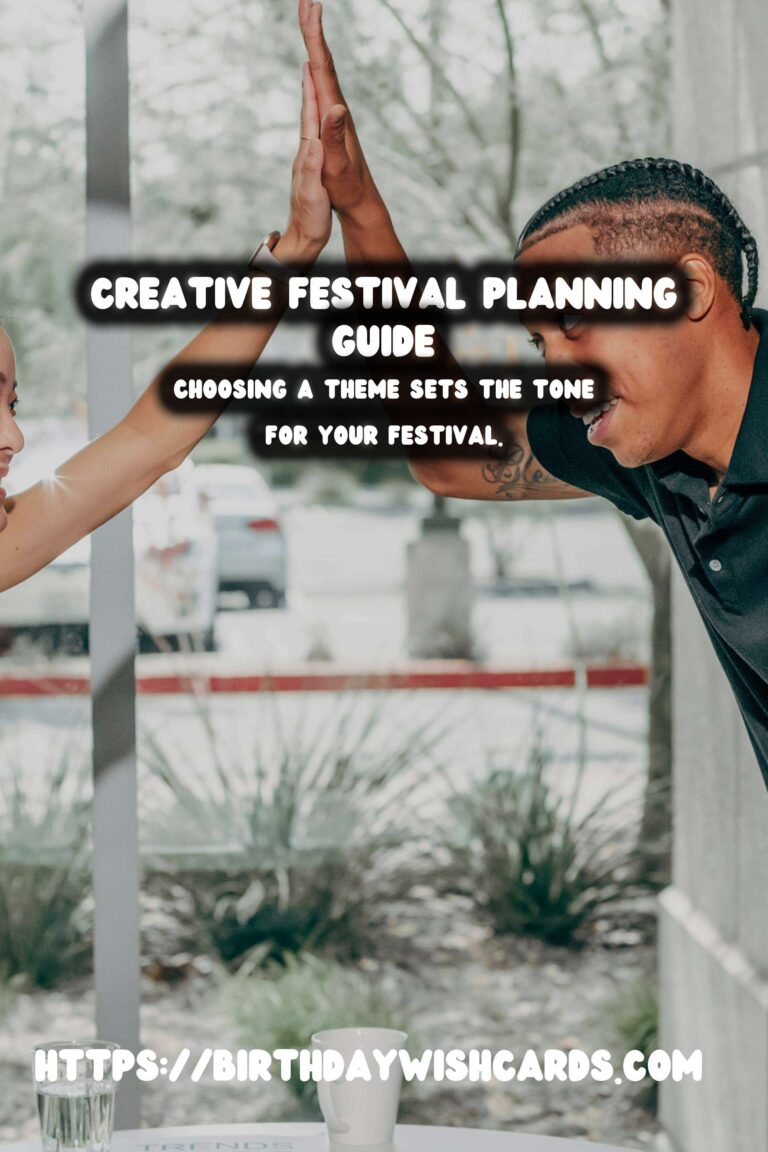
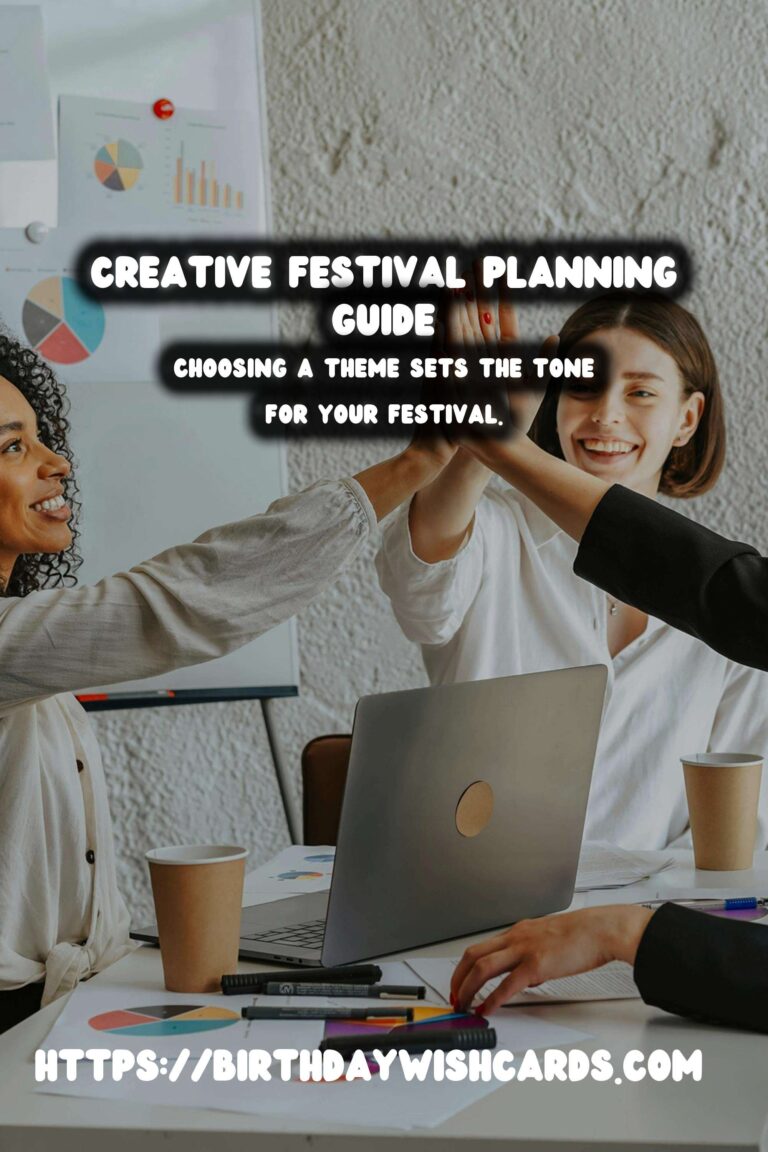
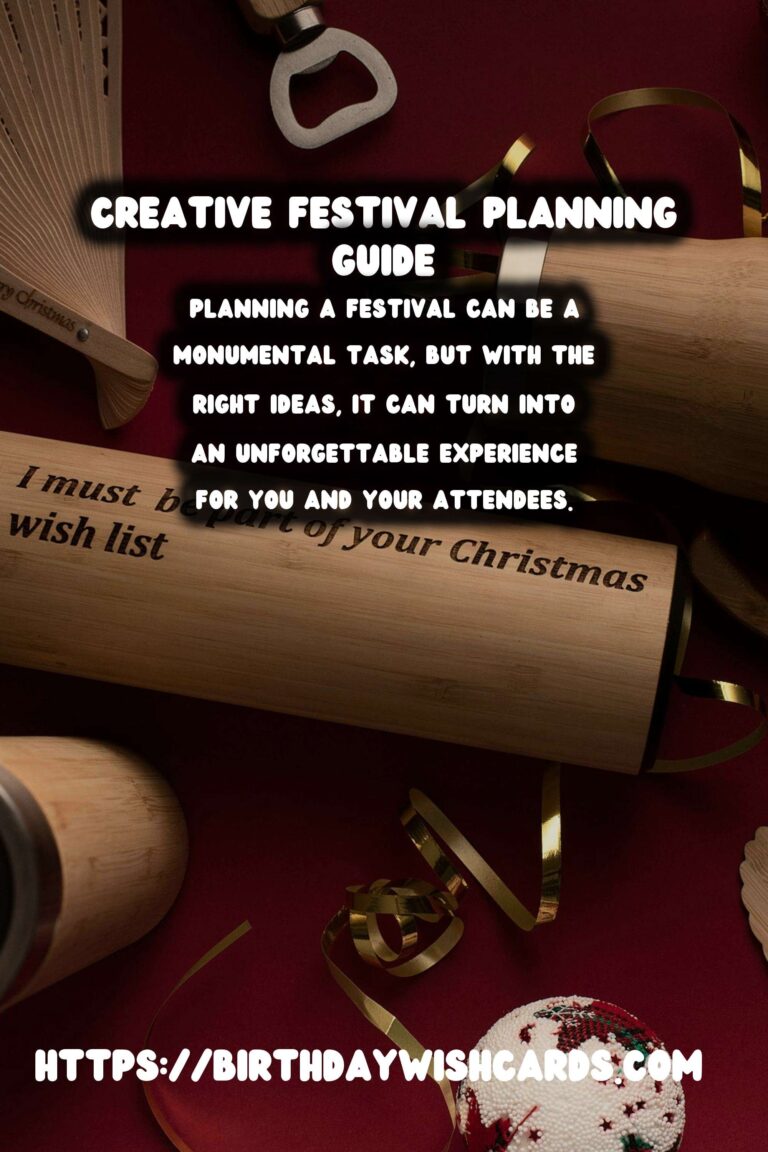
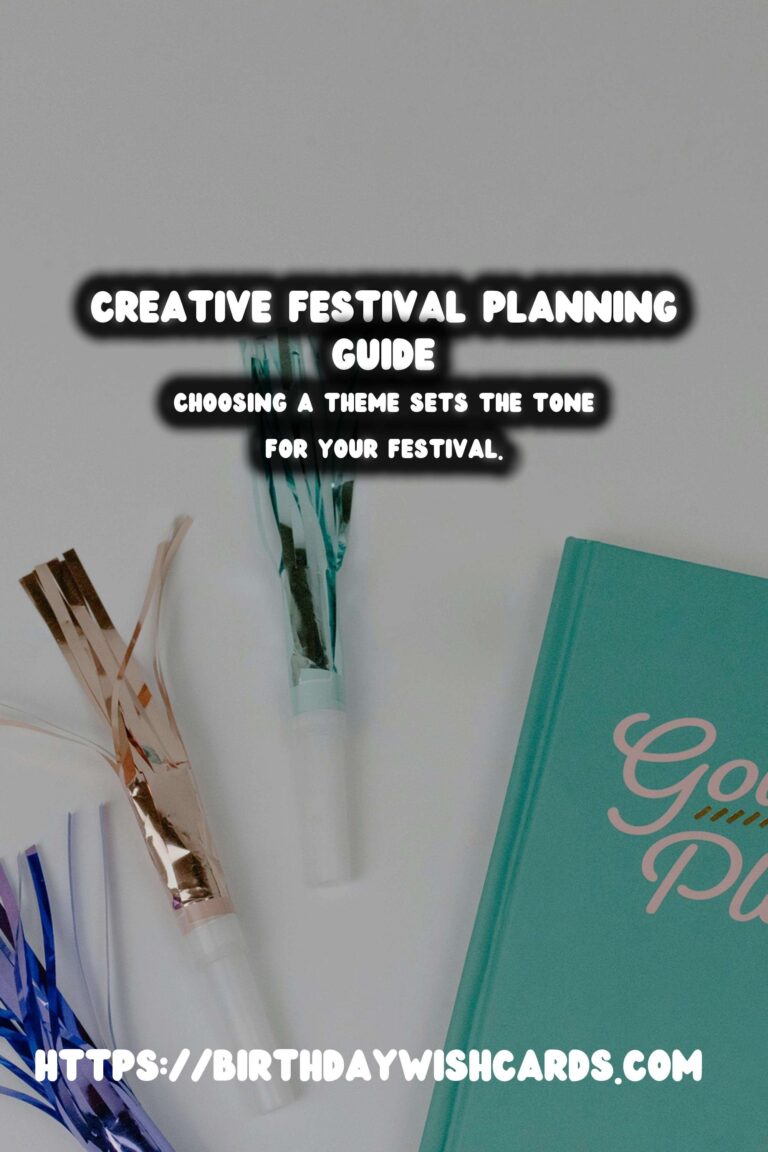
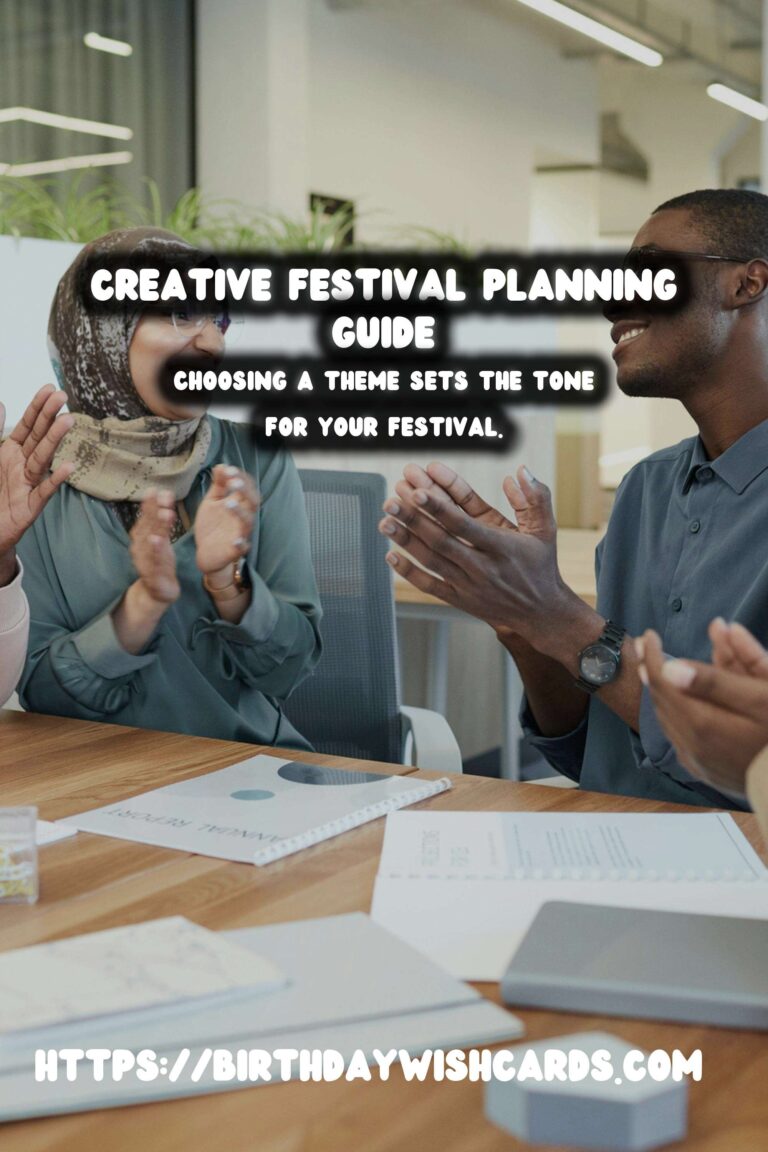
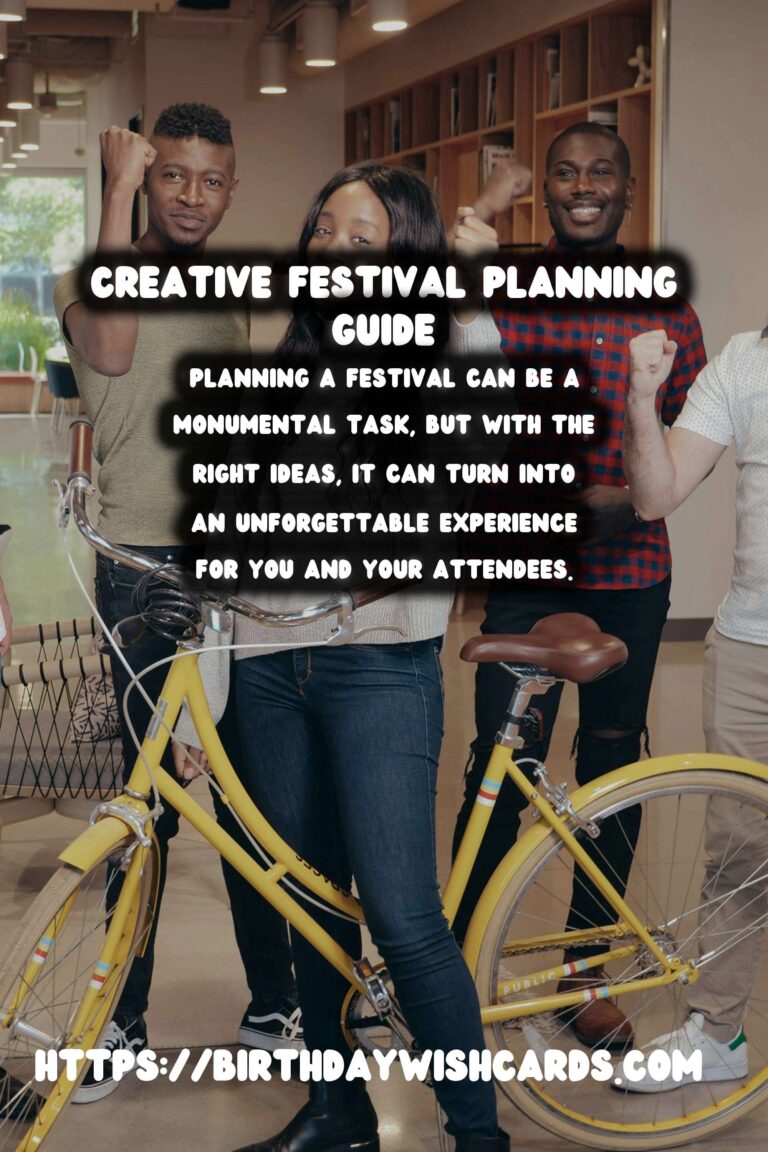
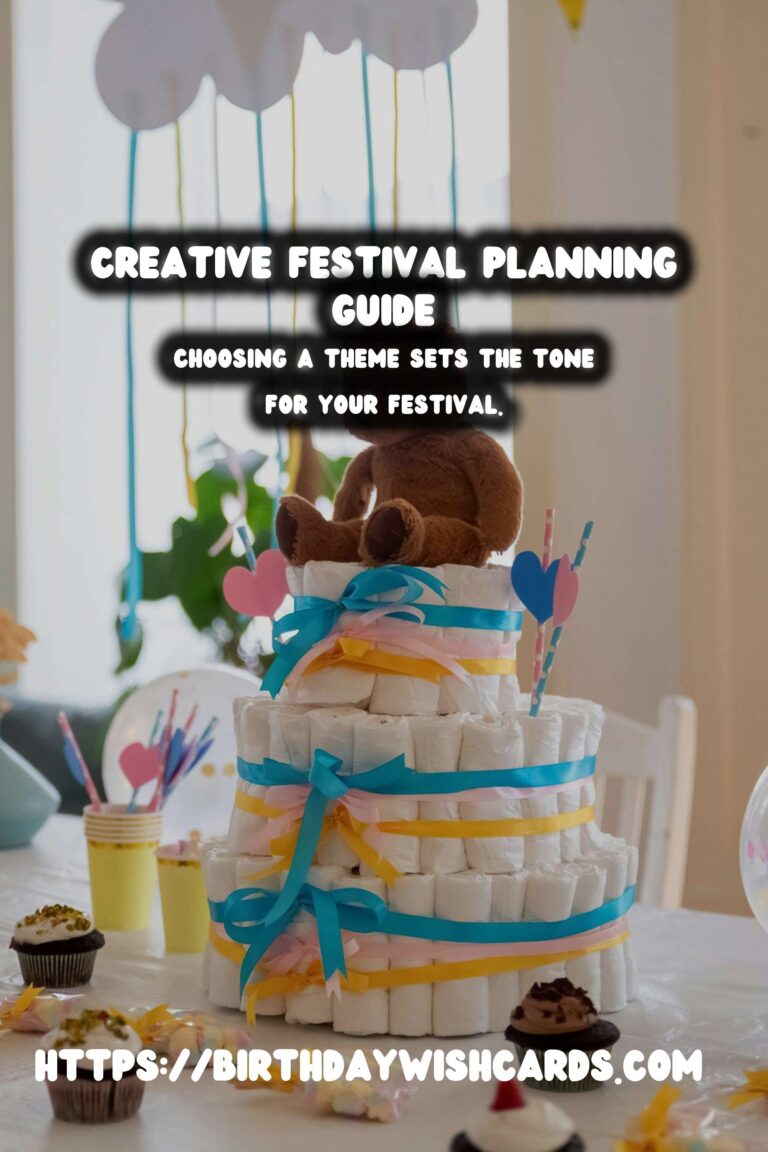
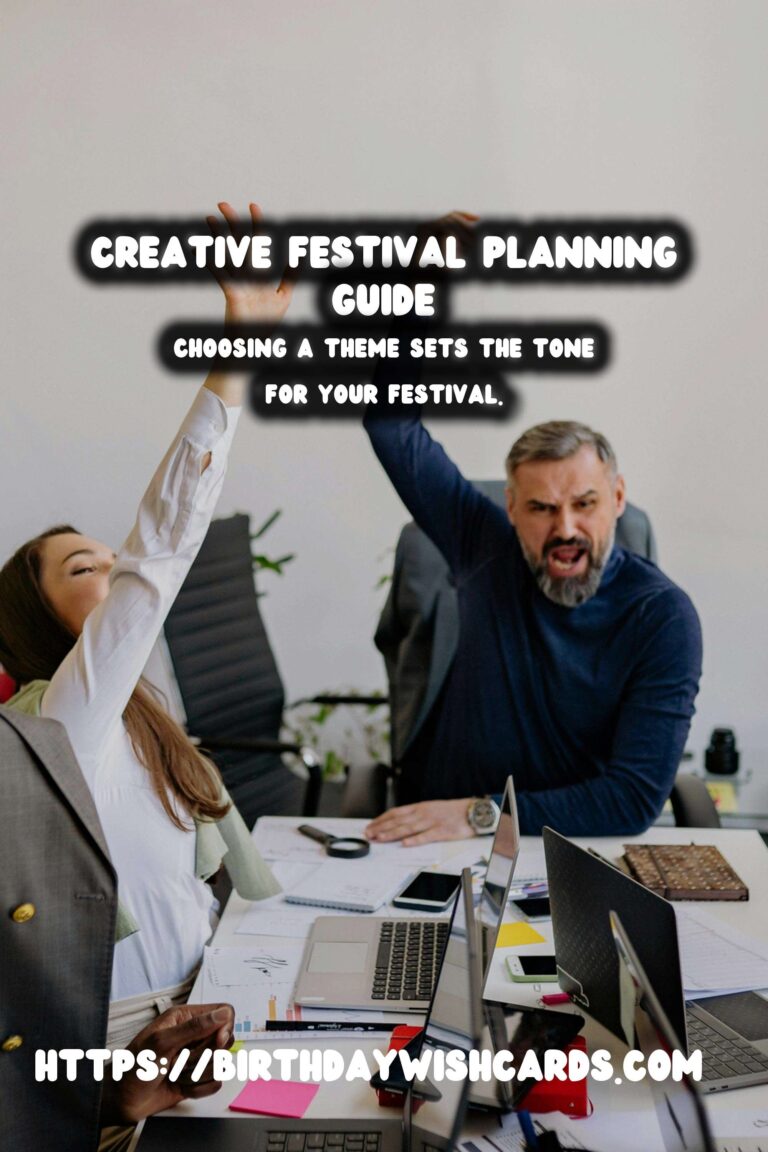
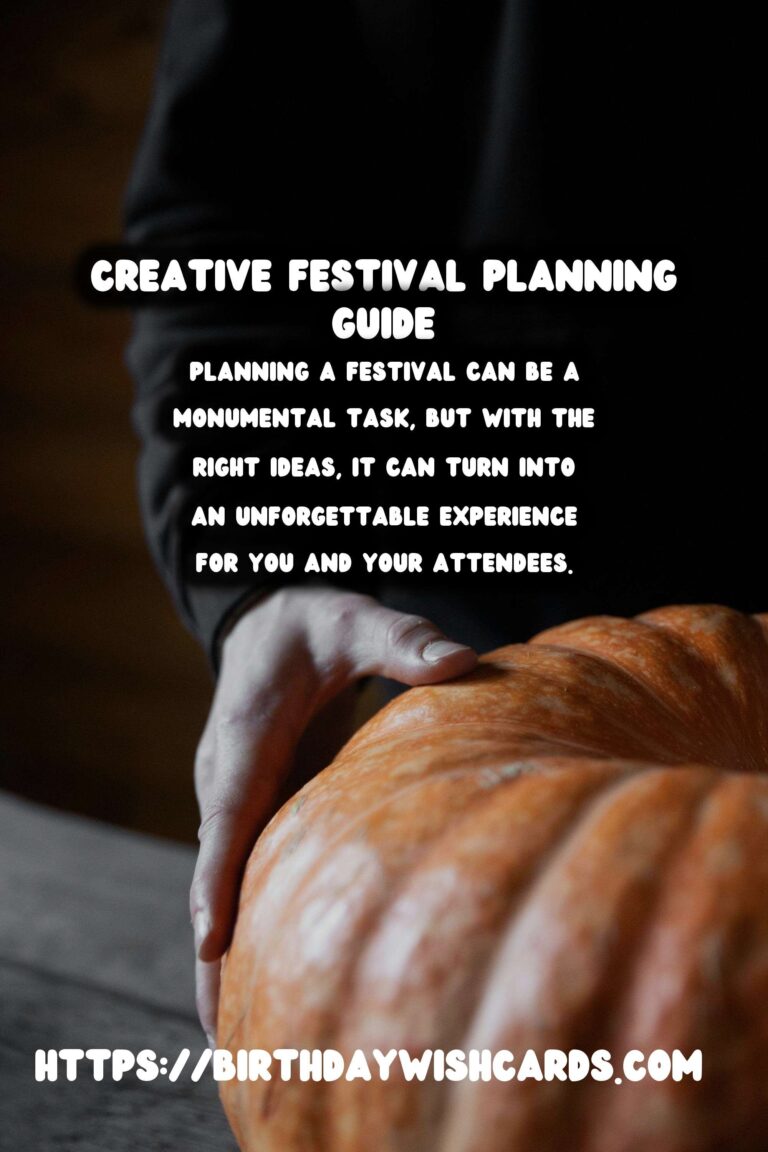
#FestivalPlanning #EventManagement


